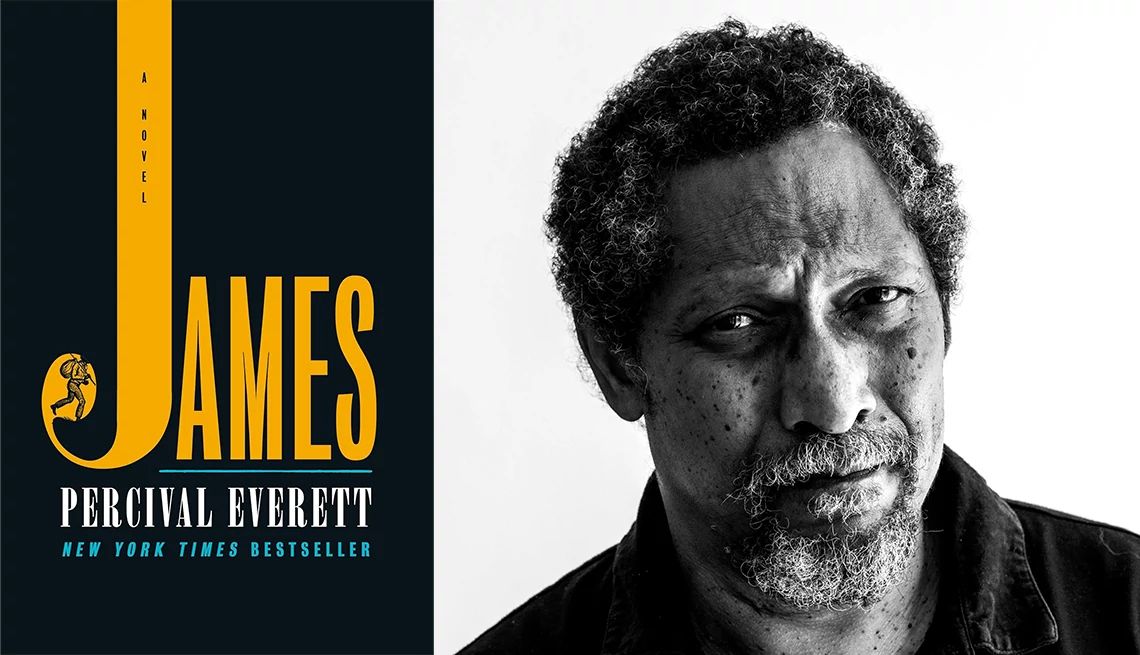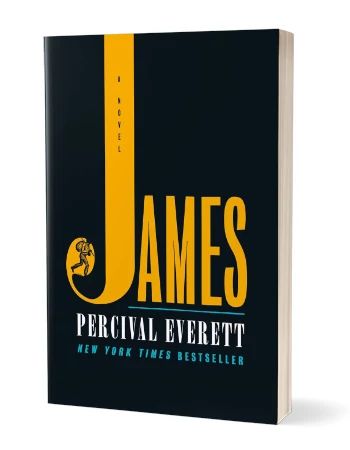AARP Hearing Center


The most widely admired novel of 2024? That would be James by Percival Everett, hands down. Everett’s brilliant bestselling story won the 2024 Kirkus Prize and the National Book Award for Fiction, was on the shortlist for the Booker Prize, and made pretty much every critic’s “best books of the year” list (including AARP’s). And Steven Spielberg has signed on to executive-produce the film adaptation for Universal Pictures.
If you’ve yet to read it, James revisits Mark Twain’s Adventures of Huckleberry Finn from the perspective of the enslaved Jim (James, actually), who flees town when he hears he’s set to be sold and sent to New Orleans. Joined by Huck, also on the run and presumed dead, he begins a wild journey down the Mississippi in a story full of wry social critique (Jim hides his fierce intelligence and eloquence when in the presence of white people), humor and suspense.


Listing it among its picks for the 10 best books of 2024, the New York Times describes it as “a literary hat trick — a book that highlights the horrors in American history and complicates an American classic, all while also emerging as a work of exquisite originality in its own right.”
Everett, 66, a distinguished professor of English at the University of Southern California, has also written some two dozen other books, including the 2001 novel Erasure, the basis for the Oscar-nominated 2023 film American Fiction.
He joined Shelley Emling, the editor of The Girlfriend , AARP’s free newsletter for Gen X women, for a live discussion about James — a Girlfriend Book Club pick — and the writing life on Feb. 18. Here are some highlights from their chat.
Where did the idea for James come from?
Well, all novels come from the [writer’s] accumulated experience and place in the world — so, in that way, I couldn’t write it without those years. On the other hand, it never occurred to me to try to tell a story from Jim’s point of view until I was playing tennis one day, and it just popped into my head.
Are you surprised at how readers have reacted to the novel?
Quite a bit. I thought it might do OK, but I didn’t think that people would become obsessed with it the way that happened. And again, it’s great. I wish all my books had this reception, but it’s unexpected.
How different was it to research and write James compared to your other books?
My work is often research-heavy, so it was very different. It was not possible for me to travel back to 1850 and see what it was like in the Antebellum Southern U.S., and I had never worked with an extant story before. I wanted to inhabit that world, but I wanted not to feel any loyalty to the text, so my research became reading Huck Finn 15 times … And the frustrating thing was that at the end of time 15, I realized that I only needed to do that 10 times.






































































You Might Also Like
TV Food Star Alton Brown, 62: ‘There’s No Such Thing As a Natural Bad Cook’
The dynamic science-nerd chef chats about his new book ‘Food for Thought,’ what makes a good cook and eating weird things as a kid
10 Fantastic Short Story Collections for Your Book Club
No time to read a long novel? A good story can give your group plenty to talk about
Diane Farr Calls It Quits on Botox
How the star embraced aging naturally